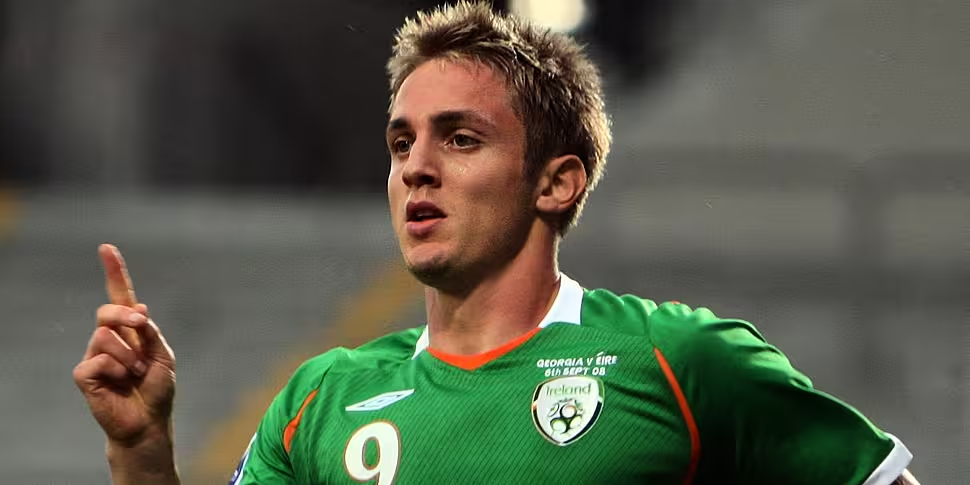A former Irish international footballer who suffered multiple concussions over his career has said restrictions on heading the ball in training are “probably not needed.”
The English FA has announced plans to make the country the first in the world to limit the amount heading that happens in professional training.
Officials also aim to bring in new rules to deal with coaches that run “inappropriate prolonged heading sessions.”
On Newstalk Breakfast this morning, former Ireland striker Kevin Doyle said the new rules are not necessary.
“I think it has gone that way naturally anyway,” he said. “Football has evolved, in the space of ten years, a long, long way where naturally the ball is on the ground a lot more anyway.
“I don’t think there is nearly as much heading now, due to the style of play, as there was, so it is probably not needed to be honest.”
Stone-age football
He said any coach who is forcing player to repetitively head the ball in the modern game is “living in the stone age a bit,” adding that any new rule should target coaches rather than training in general.
“Heading was an important part of the game in my day, I made my career or a lot of it, my ability to head the ball well,” he said.
“I would hate it to be taken out of football and I think people need to be just sensible – sensible in their training, sensible if they get a bang to the head and sensible enough to follow all the protocols.
“I think football has taken massive strides in the last couple of years in how they deal with it and I hope that works in the future and I hope they keep it up.”
Concussion
Doyle, who scored 14 goals in 62 games for Ireland suffered a number of concussions while playing, particularly after he moved to the Colorado Rapids towards the end of his career.
“I suffered a number of concussions out in the US,” he said. “Just very easy, simple things that shouldn’t have caused me to be concussed – particularly in my last season in America.
“I would get concussed from the slightest bang and speaking to all the specialist and experts after, their opinion was that my tolerance to bangs to the head had diminished to such an extent that any little tap was causing a minor concussion – or a big concussion depending on the blow.”
Return-to-play
The 37-year-old said the science suggests that the biggest problem facing sportspeople is when they do not follow return-to-play protocols after a head injury.
“Those bangs to the head, when you are still recovering from the concussion, is what diminishes your ability to take those blows to the head in the future,” he said.
“That is why, looking at football now and looking at how it is treated, that is why I would be very pleased with what is going on now.
“People take the time. They take the two or three weeks. Like all sports, the protocols are there, people are assessed as much as they can possibly be before they go back playing.”
He said he feels great since retiring form the game, noting that, “hopefully by stopping when I did that will ensure I don’t have the problems you read about and hear about.”









